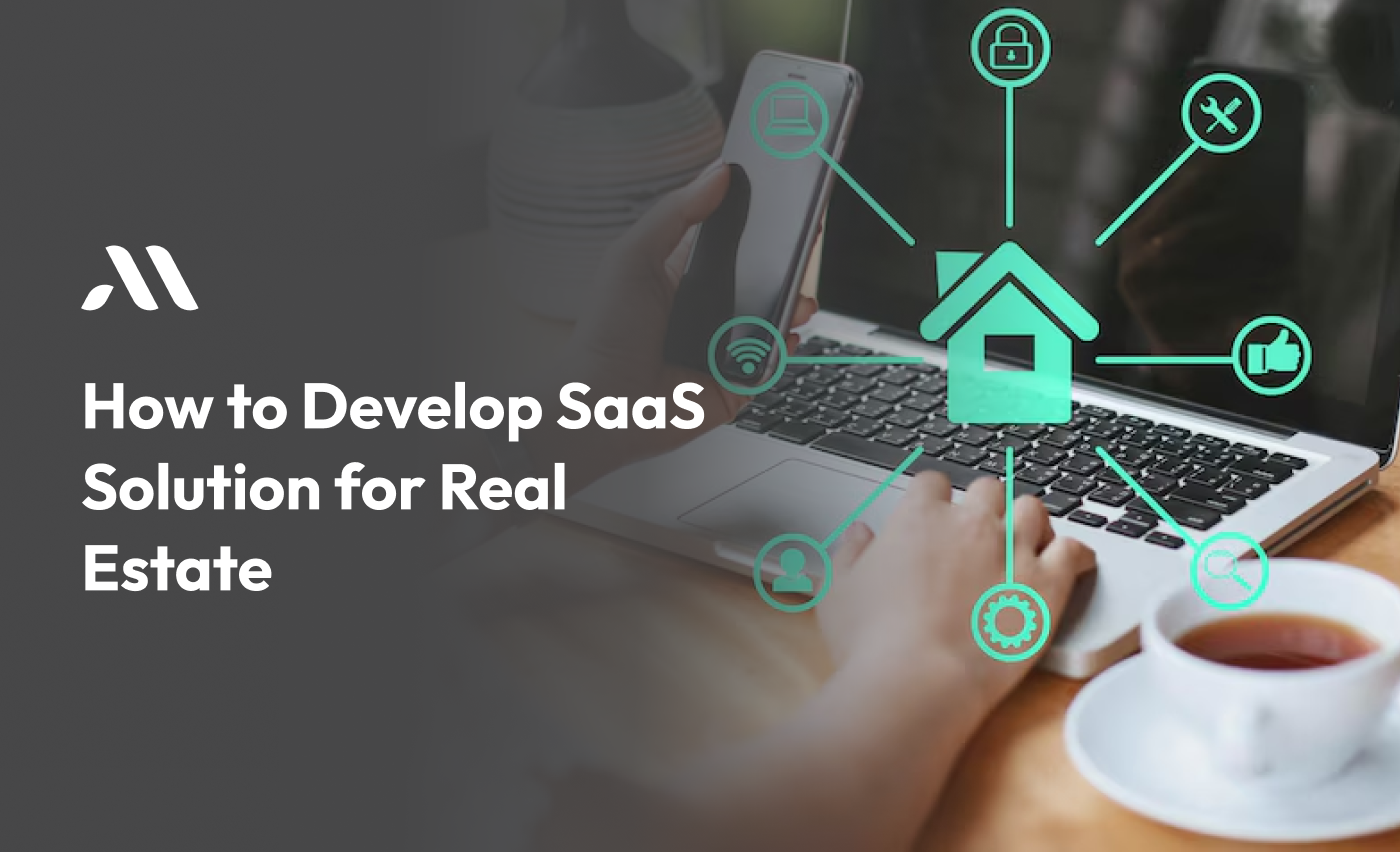In today’s digital world, real estate business owners are turning to SaaS (Software as a Service) solutions to make their operations smoother and more efficient. A SaaS solution is like a special tool that helps you run your business from anywhere using the internet. But how do you develop such a tool specifically for real estate? Let’s jump into the steps you need to follow to build a successful SaaS platform for your real estate business
“SaaS is not just software; it’s a way to connect with your business from anywhere in the world.”
- According to a recent survey, 72% of real estate businesses that use SaaS solutions report improved efficiency and productivity.
- Studies show that businesses using SaaS solutions see an average revenue increase of 30% within the first year of implementation.
1. Understanding SaaS Software Development
Before you start building your SaaS platform, it’s important to understand what SaaS software development means. SaaS software is different from traditional software because you don’t need to install it on your computer. Instead, you can access it through a web browser. This makes it very convenient because you can use it from any device, whether it’s a computer, tablet, or smartphone.
Remember: SaaS solutions are hosted in the Cloud, which means all your data is stored safely online, and you don’t have to worry about losing important information.
2. Identifying the Needs of Real Estate SaaS
To build a SaaS platform for real estate, you first need to identify the needs of your business. What problems are you trying to solve? For example, do you need help managing property listings, tracking client interactions, or handling financial transactions? Understanding these needs will help you design a SaaS solution that truly benefits your real estate business.
Note: A successful Real Estate SaaS should be user-friendly, meaning it should be easy to navigate even for people who are not tech-savvy.
3. Choosing the Right SaaS Development Company
Developing a SaaS platform requires technical expertise, so it’s important to choose the Best SaaS Development Company. Look for a company that has experience in SaaS Software Development and understands the unique challenges of the real estate industry. The right company will guide you through the entire process, from planning to deployment, ensuring that your SaaS real estate software meets your business goals.
Tip: When selecting a SaaS development company, ask for examples of their previous work and read customer reviews to make sure they are reliable and experienced.
4. Designing the User Interface (UI)
The user interface (UI) is what your users will interact with when they use your SaaS platform. A good UI is important for a positive user experience. It should be simple, clean, and intuitive so that users can easily find what they need. When designing the UI, think about how your real estate agents, clients, and other users will navigate through the software. Make sure everything is accessible and easy to use.
5. Add Essential Features
To build a SaaS platform for real estate, you need to add features that are essential for your business. Some of the key features include:
- Property Management: Keep track of property listings, sales, and rentals in one place.
- Client Management: Store and manage client information, including contact details and interactions.
- Financial Tools: Handle payments, invoices, and accounting tasks within the platform.
- Analytics and Reporting: Generate reports to analyze the performance of your business and make informed decisions.
6. Ensuring Security and Compliance
Security is a top priority when developing SaaS real estate software. You need to protect sensitive information, such as client data and financial records, from unauthorized access. Make sure your SaaS development company implements strong security measures, such as data encryption and regular security updates.
Also, your SaaS platform must comply with legal regulations, such as Data protection laws. This is especially important in the real estate industry, where handling personal information is common.
7. Testing and Quality Assurance
Before launching your SaaS platform, it’s crucial to test it thoroughly to ensure everything works as expected. Quality assurance (QA) involves checking for bugs, glitches, and any other issues that could affect the user experience. Testing should be done on different devices and browsers to make sure your SaaS software is compatible with all platforms.
Remember: Proper testing helps prevent problems down the road and ensures a smooth experience for your users.
8. Launching Your SaaS Platform
Once your SaaS platform is ready, it’s time to launch it! But launching isn’t just about making the software available to users; it’s also about marketing it effectively. You need to let your target audience—real estate business owners—know that your SaaS solution is available and how it can benefit them.
Consider using various marketing strategies, such as:
- Email Marketing: Send emails to potential customers with information about your SaaS platform.
- Social Media: Promote your software on social media platforms where real estate professionals are active.
- Webinars: Host webinars to demonstrate the features of your SaaS platform and answer questions from potential users.
Also Read - How to Develop Real Estate Web App and Development Cost
9. Providing Ongoing Support and Updates
After launching your SaaS real estate software, your job isn’t done. Ongoing support and regular updates are essential to keep your users satisfied. Offer customer support to help users with any issues they may encounter. also, update the software regularly to add new features, fix bugs, and improve performance.
Tip: Collect feedback from your users to understand what features they like and what improvements they would like to see. This will help you keep your SaaS platform relevant and valuable to your users.
Conclusion
Developing a SaaS solution for real estate can greatly benefit your business by improving efficiency, saving time, and enhancing the overall experience for your clients. By following the steps outlined above, from understanding SaaS software development to launching and maintaining your platform, you can build a SaaS platform that meets the unique needs of your real estate business.
Unlock the full potential of your real estate business with MicraSol’s expert SaaS development. We build powerful, easy-to-use platforms tailored just for you. Ready to boost efficiency and grow your business? Contact MicraSol today and let’s create the perfect solution together!
Remember: The key to success is choosing the right SaaS development company and incorporating features that truly address the challenges faced by real estate professionals. With the right approach, your SaaS platform can become an invaluable tool for your business, helping you stay competitive in the fast-paced real estate market.
FAQS
Why should I develop a SaaS platform for my real estate business?
A SaaS platform can help you manage your real estate business more easily. It can store all your property listings, client information, and financial data in one place, making it easier to run your business from anywhere.
What features should my real estate SaaS platform have?
Your SaaS platform should include features like property management, client management, financial tools, and analytics. These features will help you keep track of your business and make smarter decisions.
How do I choose the right SaaS development company?
Look for a company with experience in SaaS software development, especially in the real estate industry. Check their past projects and read reviews to make sure they’re reliable. A good company will guide you through the entire process, from planning to launching your SaaS platform.
How long does it take to develop a SaaS platform?
The time it takes to develop a SaaS platform can vary depending on its complexity and the features you want to include. It can take anywhere from a few months to a year or more. Your development company should give you a clear timeline.
Is it expensive to build a SaaS platform for real estate?
The cost of building a SaaS platform depends on factors like the features you need, the size of your business, and the company you hire. While there is an initial investment, many real estate businesses find that the benefits, such as increased efficiency and revenue, outweigh the costs.








